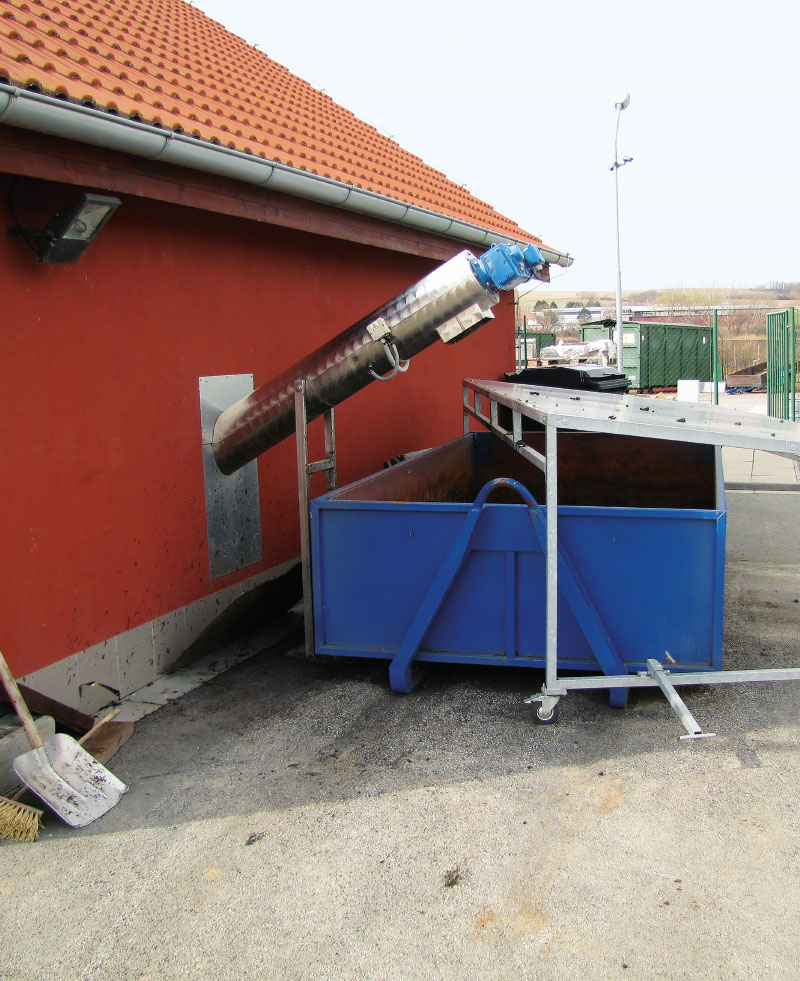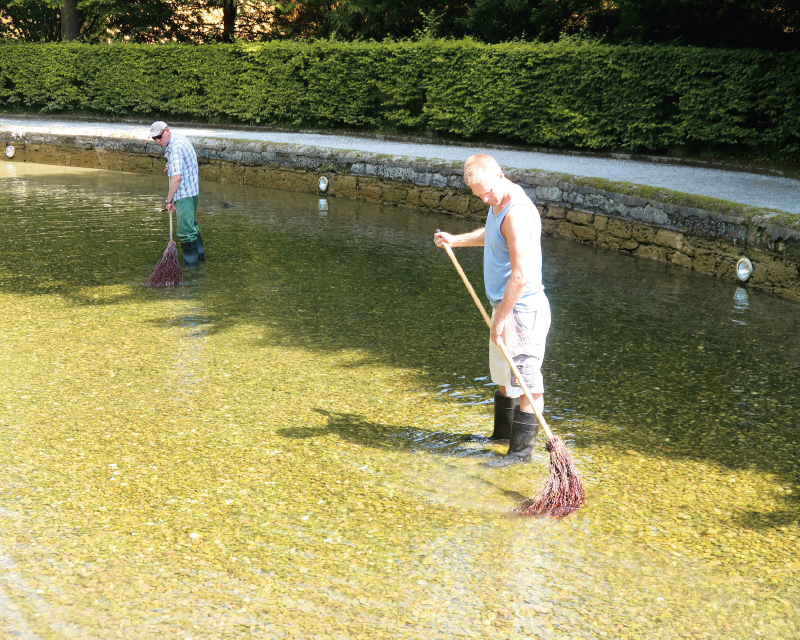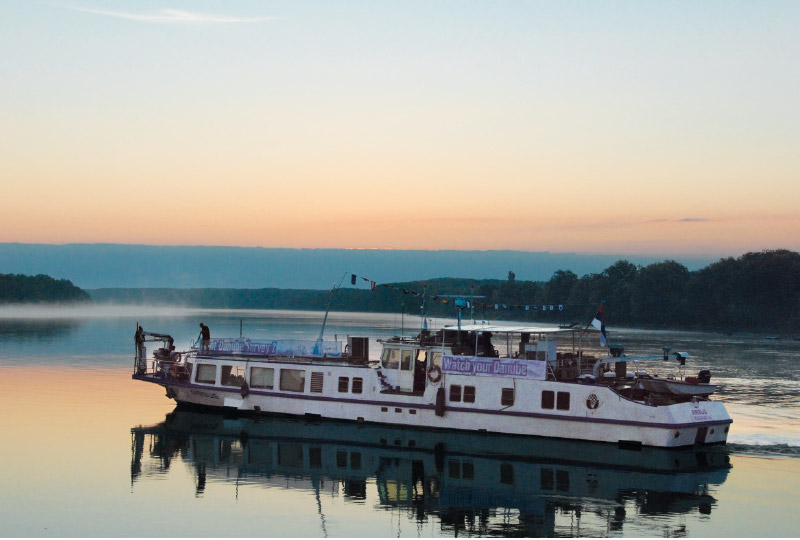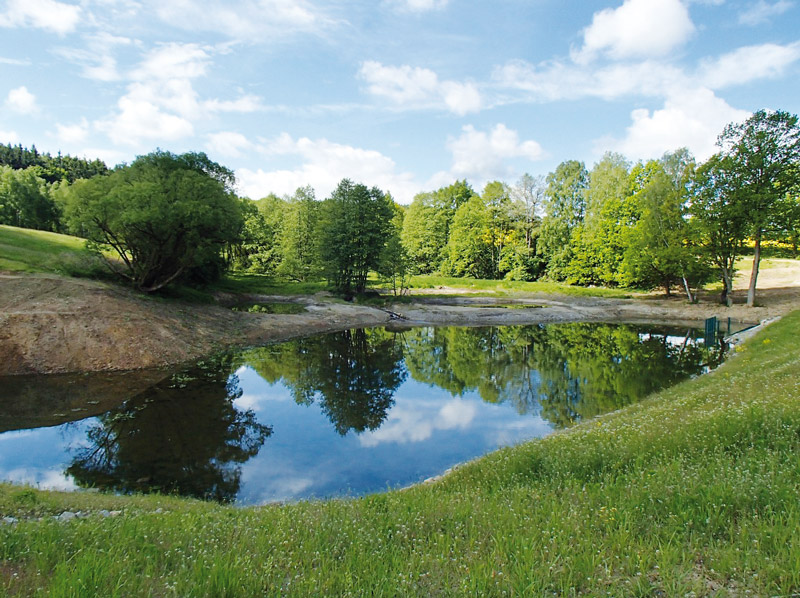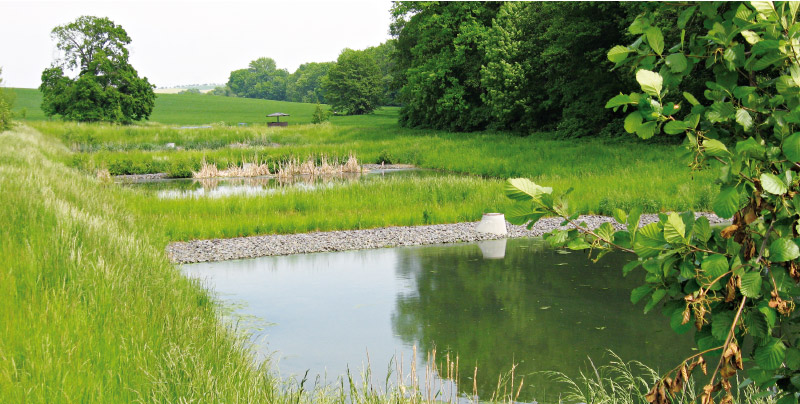Benefits and risks of using sludge from small WWTPs after processing by composting for the production of selected types of vegetables
The aim of the study, the results of which are presented in this article, was to assess the possibility of simplifying treatment and stabilisation procedures of sewage sludge from small municipal sources of pollution (domestic and small WWTPs up to about 1,000 EP) at the place of their origin and their subsequent use through extensive composting. The results demonstrated the benefit of the application of composts from a material base containing sludge from small WWTPs in increasing the production of the monitored types of vegetables. However, especially with lettuce, there was a higher transmission of selected risk elements. We therefore do not recommend the use of composts with sludge for growing leafy green vegetables. In contrast, this risk did not arise with fruit and vegetables. For practical use, it is still necessary to assess the rate of transfer of other pollutants, such as drug residues and microplastics.
Irrigation – rediscovered heritage, its documentation, popularisation and protection based on the example of historical meadow irrigation systems
Objekty závlah byly budovány a fungují převážně jako součást většího nebo menšího funkčního celku. Jejich význam i z pohledu potenciální pa-mátkové ochrany tak roste s identifikací a dokumentací nejen solitérních staveb, ale zejména celých soustav/funkčních celků a popisem vazeb mezi nimi. Samostatný objekt či stavba nemusejí být nijak výjimečné, avšak jejich zapojení do většího funkčního celku může vytvářet unikátně pojaté řešení. V oboru vodního hospodářství se obzvlášť projevuje důležitost a význam kritérií, jako je hodnota typologická, hodnota technologického toku, autenticita formy a funkce, hodnota technologických a systémových vazeb s přesahem do zemědělství či průmyslu. Článek přináší informace o možnostech využití tradičních metod historického a archivního výzkumu a dokumentace lokalit, jakož i o využití moderních nástrojů pro plošně rozsáhlejší systémy, včetně metod digitalizace a digitálního zpracování podkladů.
Study of the effectiveness of the small municipal sourcess sewage sludge extensive stabilization for their use as a fertilizer
The article is devoted to the presentation of partial results of a study aimed at determining the potential use of extensive sludge dewatering technology for small municipal WWTPs (up to 1000 PE) in the conditions of the Czech Republic. The study has shown that the use of technology based on extensive sludge dewatering and their stabilization in sludge dewatering reed beds with suitable wetland vegetation can be an alternative to other technologies. Especially in combination with constructed wetland (CW) based WWTPs, which are characterized by lower sludge production.
Fidings from testing of selected biochemical products to the heritage sites water elements environment adjustment
The article is focus on the presentation of knowledge from testing of selected biochemical preparations for the treatment of the environment of water elements of historical gardens and parks and cultural monuments.
The Danube Joint Exploration 4 – the largest international river expedition of 2019 is approaching
V červnu 2019 bude na Den Dunaje zahájena největší mezinárodní říční expedice roku – Společný průzkum Dunaje 4 (Joint Danube Survey 4, JDS4) ve 13 zemích v povodí Dunaje včetně České republiky.
Environment quality of water elements of heritage protected areas
Water elements represent a significant part of the environment of cultural heritage sites, conservation zones and areas. To fulfil the required functions, which may include social, historical, recreational and educational, but also environmental functions; it is necessary to ensure their corresponding target state.
Assessment of the relationship between water quality and functions of small water reservoirs
Small water reservoirs are one of the principal elements of agricultural landscape in the Central European context. The monitoring of the quality of aquatic environment of selected ponds and small reservoirs (SWR) in areas of southern and central Moravia and the Vysočina Region was carried out in 2013 to 2015.
Quality of sludges and wastes from household and small wastewater treatment plants and their utilization in agriculture management
The aim of this article is to introduce partial sections of the research projects TA02020128 and TA02021032 (Technology Agency of the Czech Republic). These parts of the projects pay attention to the issue of quality of sludge and other wastes produced in wastewater treatment plants (WWTP) using activated sludge process, anaerobic processes (including septics) and extensive (natural) wastewater treatment plants (with horizontal subsurface flow reed-beds), which also include mechanical pre-treatment.


